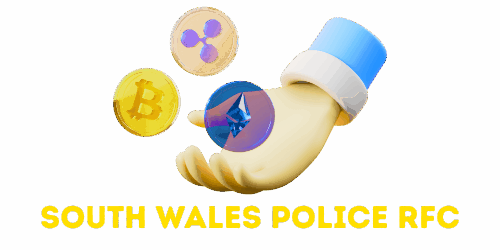Blockchain technology continues to reshape industries and redefine the way we think about transactions, security, and trust. As it evolves, the stories emerging from this dynamic landscape captivate audiences worldwide. From groundbreaking innovations to regulatory shifts, these narratives highlight the transformative power of blockchain.
In this article, readers will explore the most significant blockchain stories that have made waves recently. Each tale reveals not just the technology’s potential but also the challenges and opportunities it presents. Whether it’s the rise of decentralized finance or the impact of NFTs on art and culture, these stories offer a glimpse into a future where blockchain plays a pivotal role in our daily lives.
Table of Contents
ToggleOverview of Blockchain Technology
Blockchain technology serves as a decentralized digital ledger system, recording transactions across multiple computers. This structure ensures that all entities within the network maintain a consistent and immutable record. Blockchain relies on cryptographic techniques to safeguard data integrity and enhance security.
Key components of blockchain include:
- Decentralization: Transactions occur without a central authority, reducing risks related to single points of failure.
- Transparency: Each participant can view the entire transaction history, fostering trust among users.
- Immutability: Once verified, transaction data cannot be altered or deleted, enhancing accountability.
Industries leveraging blockchain span finance, healthcare, supply chain management, and more. In finance, entities adopt blockchain for faster payments and reduced fraud instances. In healthcare, secure sharing of patient information improves data handling while adhering to privacy regulations.
Recent developments highlight blockchain’s versatility. In decentralized finance (DeFi), users engage in lending, borrowing, and trading without intermediaries. Such platforms often offer greater accessibility and lower fees than traditional financial systems. Additionally, non-fungible tokens (NFTs) revolutionize ownership of digital assets, impacting art, gaming, and entertainment sectors.
Challenges also persist. Regulatory uncertainties and scalability issues hinder broader adoption. However, ongoing innovations aim to address these obstacles, making blockchain a crucial element in future technological advancements.
Major Developments in 2023

Major blockchain developments in 2023 reflect significant shifts in how industries utilize technology for efficiency and innovation. Two standout areas include the rise of decentralized finance (DeFi) and the growth of non-fungible tokens (NFTs).
Rise of Decentralized Finance (DeFi)
DeFi experienced substantial growth in 2023, with total value locked (TVL) in DeFi protocols exceeding $90 billion. Key contributors to this rise include the emergence of new lending platforms and automated market makers. Institutions began integrating DeFi solutions for liquidity management, demonstrating the sector’s potential as a reliable alternative to traditional finance. Chainlink, a decentralized oracle network, expanded its partnerships, enabling real-time data feeds crucial for DeFi applications. This collaboration led to enhanced protocol security and reliability, fostering investor confidence in decentralized ecosystems.
Growth of Non-Fungible Tokens (NFTs)
NFTs continued to disrupt the art and entertainment sectors in 2023, with sales reaching over $6 billion in the first quarter alone. Walmart and Nike launched NFT marketplaces, increasing mainstream adoption across consumer brands. Notable collaborations featured established artists utilizing blockchain to secure ownership and provenance, significantly affecting how art is monetized. Additionally, NFT integrations into gaming platforms proved popular, enhancing user engagement through play-to-earn models. This trend demonstrated NFTs as a valuable asset class, driving interest from collectors and investors alike.
Impact on Industries
Blockchain technology significantly affects multiple industries, driving efficiency, security, and transparency. Key sectors, including finance, banking, and supply chain management, are experiencing transformative changes.
Finance and Banking
Blockchain reshapes finance and banking by streamlining transactions, reducing costs, and enhancing security. Financial institutions increasingly adopt blockchain to process cross-border payments, which can take hours or days using traditional systems. Decentralized finance (DeFi) platforms manage over $90 billion in assets, offering users alternative lending and borrowing options. Major banks, like JPMorgan and Goldman Sachs, explore blockchain for clearing and settlement processes, aiming to increase operational efficiency. Smart contracts automate numerous financial operations, minimizing human error and increasing trust in transactions.
Supply Chain Management
Blockchain enhances supply chain management by providing end-to-end visibility and traceability. Companies utilize blockchain to track products throughout the supply chain, ensuring authenticity and reducing fraud. For instance, Walmart employs blockchain to trace food products from farm to shelf, significantly improving food safety. Transparency fosters accountability among partners, enabling swift responses to disruptions. Additionally, smart contracts automate payments once predefined conditions are met, optimizing workflows and reducing delays. The integration of blockchain leads to more resilient supply chains, which is crucial amid global uncertainties.
Regulatory Changes and Challenges
Regulatory changes significantly impact blockchain technology, introducing both opportunities and obstacles. Governments worldwide are updating their frameworks to address the evolving nature of blockchain applications.
Government Regulations
Government regulations play a crucial role in shaping the future of blockchain. Countries like the United States and the European Union are developing comprehensive regulations for cryptocurrencies and DeFi platforms. In the U.S., the Securities and Exchange Commission (SEC) has begun classifying certain digital assets as securities, imposing stricter compliance requirements. Similarly, the EU’s Markets in Crypto-Assets (MiCA) regulation aims to establish a uniform legal framework for all member states. Regulations require entities to adhere to Anti-Money Laundering (AML) and Know Your Customer (KYC) guidelines, ensuring greater accountability. These measures create environments conducive to sustainable growth but may deter innovation and hinder small startups.
Security Concerns
Security concerns present significant challenges for blockchain implementation. Despite its inherent advantages, blockchain technology faces threats from hacking, fraud, and vulnerabilities in smart contracts. High-profile breaches, such as the $600 million hack of Ronin Network in 2022, highlight the need for stronger security measures. Projects that prioritize cybersecurity practices, including regular audits and testing protocols, help mitigate risks. Moreover, regulatory bodies emphasize the importance of cybersecurity in their frameworks, further urging organizations to adopt best practices. Addressing these security concerns is vital for fostering trust and ensuring the long-term viability of blockchain within various industries.
Future Trends in Blockchain
Emerging trends in blockchain reveal significant advancements in technology integration and market expansion. Continued development suggests a dynamic future where blockchain reshapes multiple sectors.
Integration with AI and IoT
Integration of blockchain with artificial intelligence (AI) and the Internet of Things (IoT) enhances data security and process efficiency. Blockchain’s decentralized nature allows secure data sharing between IoT devices, safeguarding information from unauthorized access. AI algorithms can analyze distributed datasets stored on blockchain networks, improving predictive analytics across industries. Companies are implementing smart contracts to automate processes in real time, such as supply chain operations where IoT sensors can trigger transactions based on environmental conditions. Such integration enhances scalability and reliability of systems while reducing costs associated with data management.
Expansion into Emerging Markets
Emerging markets are increasingly adopting blockchain technology to drive financial inclusion and streamline operations. Countries in Africa and Southeast Asia leverage blockchain for remittances and microfinance, enabling quicker transactions with lower fees. Projects like Stellar and Celo focus on providing access to financial services for unbanked populations, facilitating economic growth and stability. Additionally, governments in these regions explore blockchain for land registries and identity management, reducing fraud and increasing transparency in property ownership. This expansion positions blockchain as a catalyst for economic development, fostering innovation in sectors that historically lagged in technology adoption.
The landscape of blockchain technology continues to evolve rapidly. With significant advancements in decentralized finance and the growing influence of NFTs, industries are embracing innovative solutions that enhance efficiency and security. As regulations adapt to this dynamic environment, opportunities and challenges will shape the future of blockchain.
Emerging trends in AI and IoT integration promise to further revolutionize how blockchain is utilized across various sectors. As organizations navigate these developments, the potential for blockchain to drive economic growth and transform traditional practices remains substantial. The journey ahead is filled with possibilities that will redefine the way transactions and data sharing occur globally.








